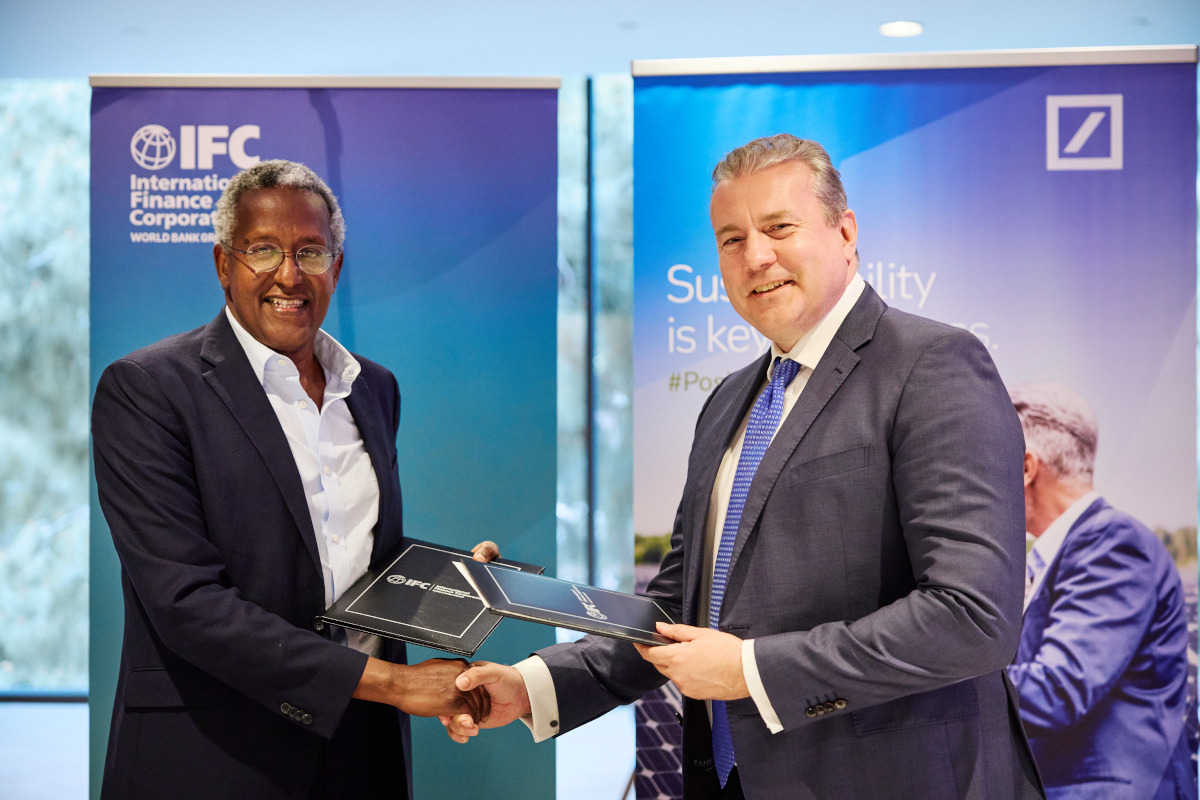June 2024
IFC and Deutsche Bank partner to boost trade finance in Africa
Deutsche Bank and the International Finance Corporation (IFC) announce a risk-sharing facility of up to €215m to help provide vital financing to Africa’s importers and exporters of essential goods, with a particular focus on small, fragile, and conflict-affected states throughout the continent
In 2022, African countries imported and exported US$1.1trn worth of goods and services, equivalent to 54% of the continent’s gross domestic product (GDP). However, cashflow limitations restrict banks in Africa from meeting client demand for trade finance, curbing the region’s ability to offer globally competitive services. For example, the IFC-WTO joint study of West Africa found that the Côte d’Ivoire, Ghana, Nigeria, and Senegal – known collectively as the ECOWAS4 – has a trade finance gap as high as US$14bn annually.
To help bridge the financing gap across Africa, Deutsche Bank has partnered with the IFC – the world’s largest global development institution focused exclusively on the private sector– on a €215m risk-sharing facility. This will enable Deutsche Bank to continue providing trade financing to African countries at a time when many global banks are pulling back – ultimately supporting the ongoing flow of trade on the continent.

Left to right: Mohamed Gouled, IFC Vice President for Industries; Borislav Ivanov-Blankenburg Global Head of Documentary Trade Finance for Deutsche Bank
“IFC’s risk participation with Deutsche Bank leverages our issuing bank network to enable trade flows in Africa with our Global Hausbank clients and echoes a shared commitment to ongoing economic growth in emerging markets,” said Borislav Ivanov-Blankenburg, Global Head of Documentary Trade Finance for Deutsche Bank.
This partnership underscores the growing importance of multilateral development banks (MDBs) in bringing investment into emerging markets. MDBs are hugely important in channelling much-needed investment into riskier parts of the world. Since their foundation in the 1940s to aid post- World War II rebuilding, MDBs have worked to promote social and economic development on a global and regional scale by partnering with governments and the private sector to provide loans and grants.
MDBs serve as a support system for nations and their institutions as they transition to operating as open, market-based economies. They provide these markets with access to clean credit lines, longer tenors, and affordable pricing, while reducing the cost of risk weighted capital for banks looking to finance trade in frontier markets.
The increase in trade that these MDBs facilitate can help vulnerable countries adapt to climate change and strengthen food security, in part by improving the availability and affordability of food supplies, according to the IMF.
Enabling future growth across Africa
Under the facility, IFC will provide risk participation in a portfolio of trade transactions originated by Deutsche Bank with local issuing banks in Africa. The initial portfolio will cover risk for 40 issuing banks across 18 countries on the continent, 14 of which are classified by the International Development Agency (IDA) as small, fragile and/or conflict-affected.
“IFC’s partnership with Deutsche Bank comes at a time when traders in Africa are finding it increasingly difficult to access credit, with demand for trade finance from banks on the continent greatly outstripping supply,” said Mohamed Gouled, IFC Vice President for Industries. “This risk-sharing facility will help African importers and exporters participate in global value chains, creating jobs and driving economic growth.”
The project is the first Global Trade Liquidity Program (GTLP) facility under the IFC Africa Trade and Supply Chain Recovery Initiative (ATRI) supported by the IDA Private Sector Window (PSW) Blended Finance Facility to help increase the amount of credit made available to emerging market issuing banks in Africa. IFC is optimistic that its investment will encourage other financial institutions to deliver trade finance to credit-issuing banks in Africa, resulting in more support for trade in essential goods across the continent. However, time is of the essence.
About the IFC
The International Finance Corporation (IFC) is a member of the World Bank Group, and the largest of the global development financial institutions, focused on the private sector in emerging markets. Based in Washington DC, the institution works in more than 100 countries, using its capital expertise and influence in developing countries.
